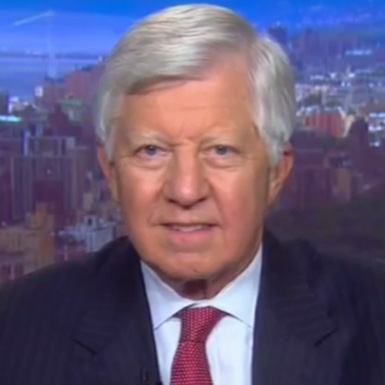Former Medtronic Chairman and CEO Bill George, discusses how well management is adapting to the new retail environment.
Monthly Archives: November 2015
Bill George’s Discover Your True North Raleigh Celebration
Watch Bill’s visit to Raleigh and panel discussion on Discover Your True North
Huffington Post: Vulnerability is Power
“To show your weakness is to make yourself vulnerable, to make yourself vulnerable is to show your strength” — Criss Jami
Imagine a moment when you felt fully comfortable with others. You weren’t guarding what you said. You weren’t monitoring how others perceived you. And you shared life stories you rarely  do.
do.
You were vulnerable, and you were perfectly authentic with others, and you were accepted by them — and that gave you a deep sense of well-being.
For many of us, we achieve this level of vulnerability only with our closest family and friends. Even then, we rarely expose our deepest secrets, as we hide behind masks, excuses, and obfuscations.
For many years of my career, I lacked the confidence to share my weaknesses, fears, and vulnerabilities. I thought I had to be perfect and not show vulnerability. It wasn’t until I had a crucible in my forties and realized I was losing sight of my True North of helping others by trying too hard to succeed. When I opened up and let go of my insecurities, I felt more comfortable in my skin and had a stronger sense of well-being, and my relationships with colleagues improved.
A year after I joined Medtronic, I faced a test of my willingness to admit my mistakes. I reorganized the company around three global regions and appointed an experienced executive from a subsidiary company as president of Europe. Several colleagues were wary of him due to his aggressiveness but I felt he was exactly what we needed.
Six months later our general counsel informed me that our auditors had uncovered a bribery fund he had been running in the European subsidiary by funneling money from secret Swiss bank accounts to Italian physicians. We terminated him immediately and reported the issue to U.S. and European authorities. That turned out to be the easy part.
It was much more difficult to explain to our board of directors and executive team that I had made the mistake by failing to investigate his values. Because I admitted my mistakes and acted vulnerably, the board supported me fully, and respected me more because I took full responsibility rather than blaming him.
In his book Love Leadership, John Hope Bryant, who was homeless for six months as a teenager, proclaims, “Vulnerability is power.” When I share this idea with executives in my classroom, a look of apprehension comes over their faces. Yet, by being vulnerable you can connect authentically with others. By being open, you retain the power, rather than acting in fear of being unmasked and exposed. As Bryant says, “Vulnerability is the key to freedom.”
Bryant backs it up with his life story and personal experiences of being vulnerable. He grew up in a poor family in the rough neighborhood of South Central Los Angeles. After his parents divorced when he was five, Bryant’s life was like a roller coaster. He had a strong work ethic and an entrepreneurial spark that resulted in some early business successes but by his late teens, he was struggling. As he told me, “I faked it, acting like a big cheese, wearing sunglasses at night to feel important. It was just low self-esteem. Then I came up short one too many times, lost an investor’s money and couldn’t pay him back, and wound up homeless.”
Bryant has learned that acknowledging his life experiences to others has given him power and intense healing. As he shared in Discover Your True North, “If I don’t feel comfortable in my skin, I am unwilling to be vulnerable. To heal, you’ve got to get over the fear of just being yourself.”
Bryant’s vulnerability is his power. In my classroom he openly described the pain he experienced in being homeless. He comes across as less than perfect, which makes him more sympathetic, authentic, and persuasive. Others connect with him, as evidenced by former president Bill Clinton, former ambassador Andrew Young, and Fortune 500 CEOs who are partnering with Bryant’s organization, Operation Hope.
What would it mean if we were willing to be vulnerable and expose our full selves to the world by just being our authentic selves? No more false layers of protection. At first, it might be scary, but as we realize that people accept and love us for who we really are, it would be liberating: I can be who I am.
The more often we can achieve this vulnerability, the greater our sense of well-being. To begin, try opening up with your close friends and family by telling them a single insecurity, memory, or loss that you haven’t shared before.
In the beginning of this post, I asked you to imagine a moment when you were perfectly comfortable with others. Now, imagine the opposite. Perhaps it was a high-risk, high-impact moment: a job interview, a board meeting, or a tense argument with a loved one. In that moment, think of how difficult it was is to share how you felt. But when you did, it was liberating.
As you grow more comfortable, share these stories with more people around you. At first, you may feel uneasy until you recognize that they accept you as you are. As you open yourself, others will open up as well, thus beginning a virtuous circle of vulnerability.
Embrace those moments to share and be vulnerable. Now you have the power, and no one can take it from you.
This article was originally posted on Huffington Post on 11/24/15.
Toronto Globe and Mail: Staying grounded is key to balancing life and leadership
Successful leaders live complex and demanding lives. As the frequency of communication has intensified, the pace of business has increased.
Yet many of us have not learned how to deal with this. There is never enough time to do everything you want to do, because the world around you makes ever greater demands on your time. Nor will you be able to achieve a perfect balance between all aspects of your life – career, family, friends and community, and personal life. Inevitably, you will have to make trade-offs. How you do so will determine how fulfilling your life will be.
everything you want to do, because the world around you makes ever greater demands on your time. Nor will you be able to achieve a perfect balance between all aspects of your life – career, family, friends and community, and personal life. Inevitably, you will have to make trade-offs. How you do so will determine how fulfilling your life will be.
Authentic leaders are aware of the importance of staying grounded. In doing so, they avoid getting too cocky during high points and forgetting who they are during low points. Spending time with family and close friends, getting physical exercise, having spiritual practices, doing community service, and returning to places where they grew up are all ways to stay grounded. This grounding is essential to their effectiveness as leaders because it enables them to preserve their authenticity.
To avoid letting professional commitments dominate their time, authentic leaders must give priority to their families and take care of themselves personally, in terms of their health, recreation, spirituality, and introspection. There is no silver-bullet solution to this issue, but neglecting to integrate the facets of life can derail you. To lead an integrated life, you need to bring together the major elements of your personal life and professional life, including work, family, community, and friends, so that you can be the same person in each environment. For authentic leaders, being true to themselves by being the same person at work that they are at home is a constant test, yet personal fulfilment is their ultimate reward. Doing so will make you a more effective leader in all aspects of your life.
Stay Grounded
To integrate your life, you must remain grounded in your authentic self, especially when the outside world is chaotic. Well-grounded leaders have a steady and confident presence. They do not show up as one person one day and another the next. Integration takes discipline, particularly during stressful times, when it is easy to become reactive and slip into bad habits.
Leading is high-stress work. There is no way to avoid stress when you are responsible for people, organizations, outcomes, and uncertainties of the environment. For global leaders, long overseas trips intensify the stress. The higher you go, the greater your freedom to control your destiny but also the higher the stress. The question is not whether you can avoid stress but how you can manage and relieve it to maintain your own sense of equilibrium.
When Medtronic’s Chris O’Connell gets stressed, he said:
“I feel myself slipping into a negative frame of mind. When I’m at my best, I’m very positive and feel I can accomplish anything, both at work and home. When I become negative, I lose effectiveness as a leader and become even less effective at home. Both positive and negative emotions carry over between work and home.”
Focus on What Matters
When Sheryl Sandberg worked as a McKinsey management consultant, her manager implored her to take more control over her career, telling her, “McKinsey will never stop making demands on our time, so it is our responsibility to draw the line … We need to determine how many hours we are willing to work and how many nights we travel.”
After the birth of her son, Sandberg adjusted her in-office hours at Google to 9 a.m. to 5:30 p.m., enabling her to nurse her son. To compensate, Sandberg got up in the early morning hours to check e-mails and worked at home after her son went to bed. She learned that by focusing her time, she did not need to spend 12 hours a day in the office.
“I focused on what really mattered and became more efficient, only attending meetings that were truly necessary. I was determined to maximize my output while away from home,” said Sandberg. “I also paid more attention to the working hours of those around me; cutting unnecessary meetings saved time for them as well.”
Stay true to your roots
Starbucks CEO Howard Schultz goes back to Brooklyn from time to time, Intuit Chairman Bill Campbell stays in regular contact with his old friends in Homestead, Penn., which helps him keep perspective on life in Silicon Valley. To restore themselves and keep their sense of perspective, leaders may have a special place they can go with their families on weekends and vacations. Many renowned leaders found they can think more clearly when they escape: Thomas Jefferson had Poplar Forest and Winston Churchill had Chartwell. For decades, former U.S. secretary of state George Shultz and his wife went to an old family farm they own in Massachusetts.
“I once told the president, ‘This is my Camp David,’” said Shultz. “When I go there, I put on an old pair of pants and old shoes. I am so relaxed, I don’t worry about anything.”
Find time for yourself
To manage the stress of our leadership roles, we need personal time to reflect. Some people practise meditation or yoga to centre themselves and relieve anxiety. Others find solace in prayer. Some people find they can release tension by jogging. Others find relief through laughing with friends, listening to music, reading, or going to movies. It’s not important what you do, as long as you establish routines to relieve your stress and think clearly about life, work, and personal issues. It is critical not to abandon these routines when facing an especially busy period, because that is when you most need your stress reduction techniques.
This article was originally posted to The Toronto Globe and Mail
FastCompany.com: What Does Authenticity Really Mean?
Authenticity is a hot word in leadership discussions. The modern workplace is more informal and less hierarchical than in the past. Command-and-control 
management doesn’t fly with people hired for their creative brainpower. They want leaders who inspire them, and give them reasons for working beyond a paycheck.
But all this requires a nuanced understanding of what “authenticity” should mean. In a business context, it doesn’t mean the “be yourself” phrase that probably pops into your mind first. For evidence of this, consider that many of Donald Trump’s supporters praise him for what they view as authenticity. He says what he thinks. He doesn’t seem to care what other people think of that. Yet business leaders emulating this approach might quickly find themselves in trouble. “Being authentic is much more than ‘being yourself,’” says Gareth Jones, coauthor of Why Should Anyone Work Here?: What It Takes to Create an Authentic Organization. “If you want to be a leader, you have to be yourself—skillfully.”
STYLE IS NOT AUTHENTICITY
To be themselves—skillfully—smart leaders first recognize that authenticity is not about behaving in the exact same way, regardless of context. You may be a casual person, but dressing in shorts when other people expect suits sends a message of disrespect. “It’s not about style. It’s the person inside of you,” says Bill George, author of Discover Your True North: Becoming an Authentic Leader.
And even with this, you need to think about how the person inside of you comes across. In your personal life, you may love to share your religious faith because it’s what motivates you and inspires you. That doesn’t mean you should proselytize in staff meetings.
Second, smart leaders recognize that “effective leadership is a skillful, authentic role performance,” says Jones. You might be the kind of person who, deep down, likes to sit in the hotel and watch movies when you’re jet-lagged. But if you’ve jetted in somewhere to boost morale and excite people about your mission, leadership means you need to suit up and do what they are expecting you do.
KNOWING WHERE YOU’RE FROM
Here’s a more workable definition of authenticity in a business context. It’s about being consistent in word and deed, having the same fundamental character in different roles, and being comfortable with your past. Indeed, the first definition of “authentic” that pops up when I type it in Google is “of undisputed origins.” “You can change your future, but you can’t change your past,” says Jones. “Your past made you who you are.”
That doesn’t mean authentic leaders need perfect stories explaining all their life choices. “I think storytelling has become a bit of a kind of fad,” says Jones. There is nothing authentic about hunting through past events with a coach to determine a story that ties neatly to your current product line.
Understanding what shaped you can help you interact with other people without the barriers that lead to disengagement. “Authentic leadership is inherently a developmental process,” says George. It’s about becoming “the person you are created to be.”
This article was originally posted to FastCompany.com
Meditate This: Podcast – The “CEO” of Mindful Leadership
Bill George
The “CEO” of Mindful Leadership
episode 57
Sure, he was the CEO of Medtronic and a senior executive at Honeywell and Litton Industries.  And sure he sits on the Board of Directors for Exxon Mobil, the Mayo Clinic, and Goldman
And sure he sits on the Board of Directors for Exxon Mobil, the Mayo Clinic, and Goldman
Sachs. And yes, he’s a professor of Management Practice and a Henry B. Arthur Fellow of Ethics at Harvard Business School.
But Bill George is no central casting idea of a “businessman.” A meditation practitioner for more than 40 years, Bill has spent long periods on retreat and still starts each plane trip with a 20-minute meditation. So listen to this very special perspective from a man who is trying to help leaders transform their thinking from “me” to “we.”
This article was originally posted to Meditate This!
